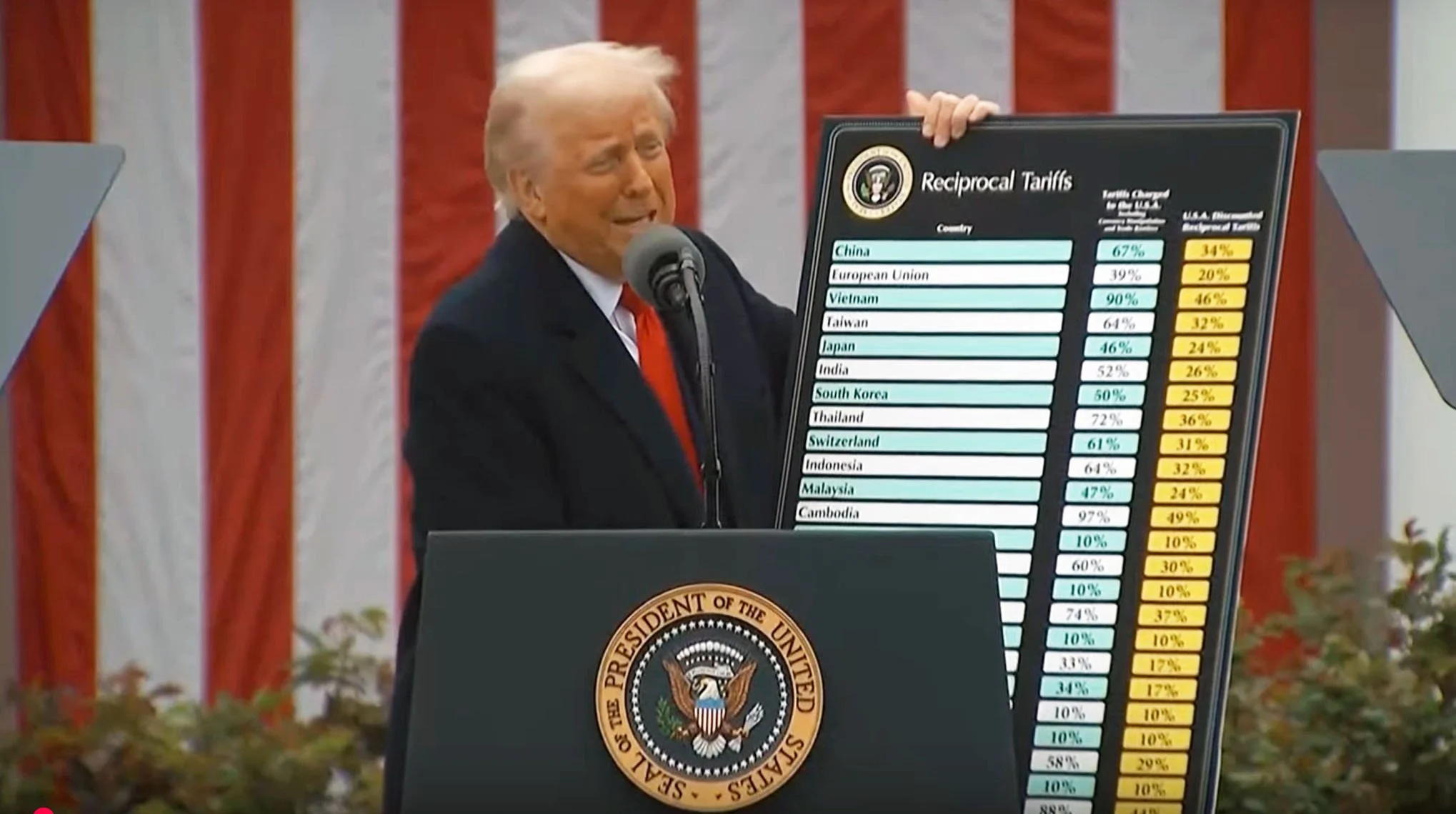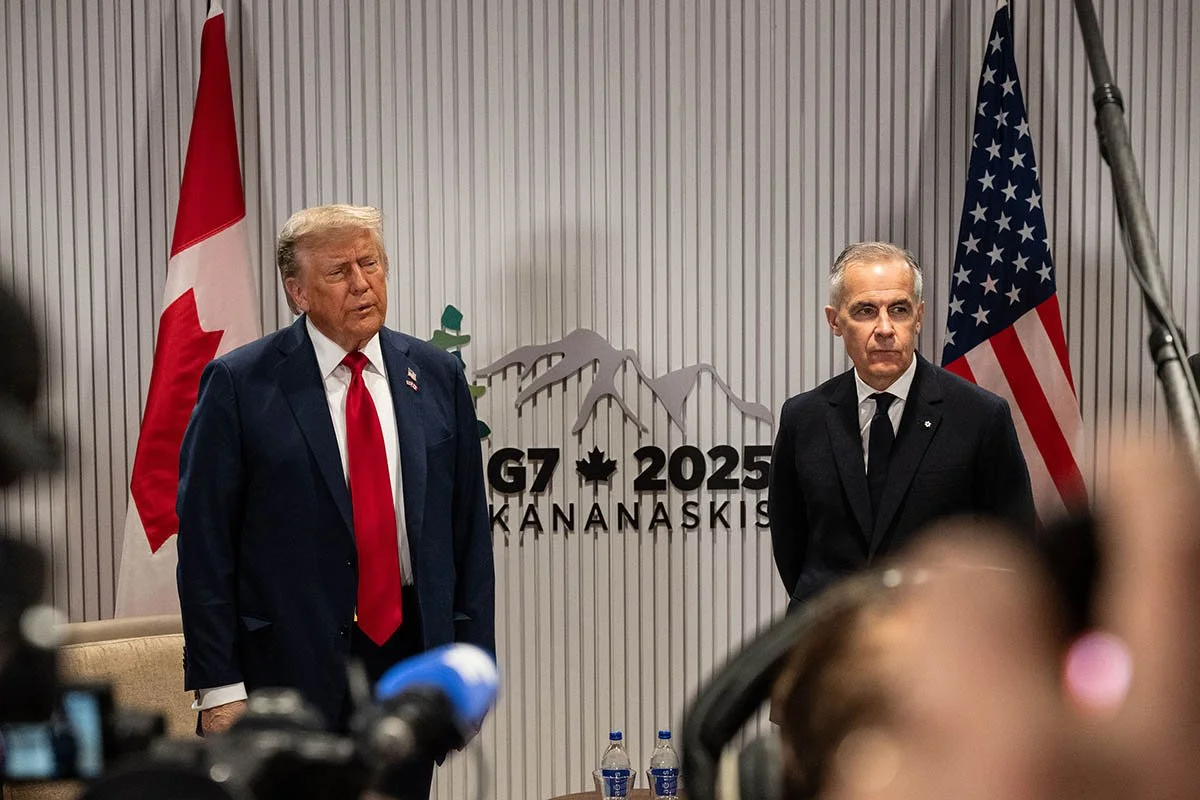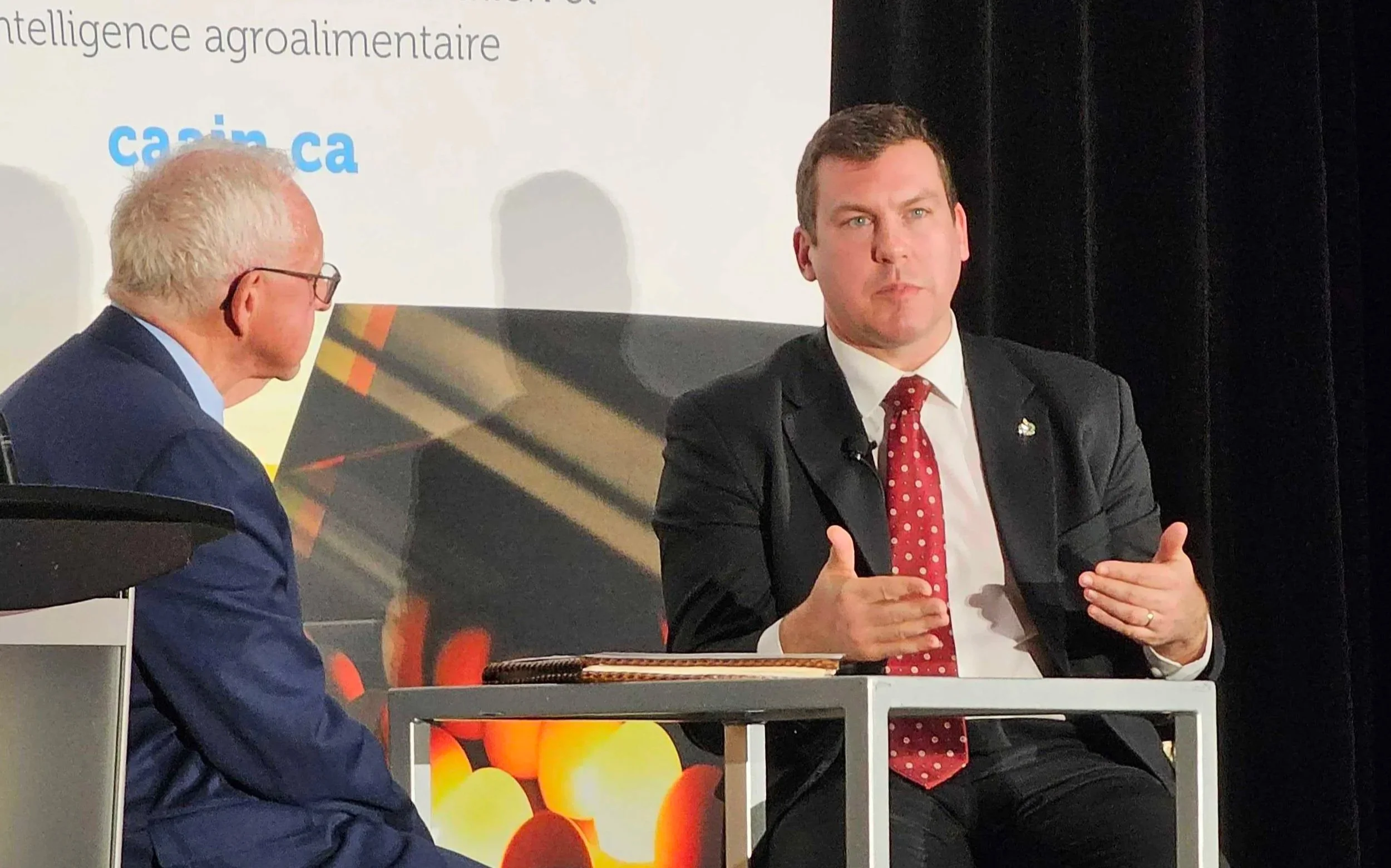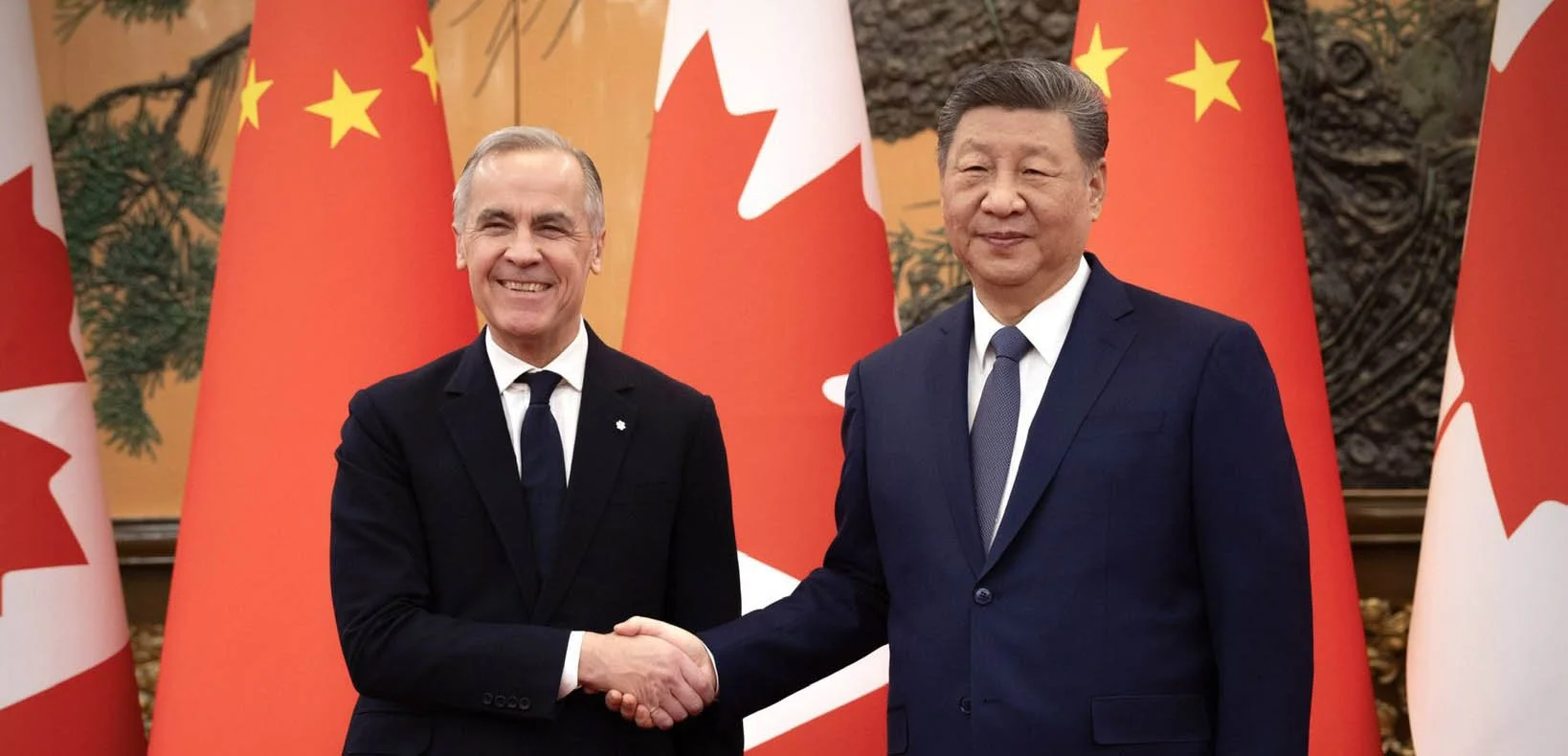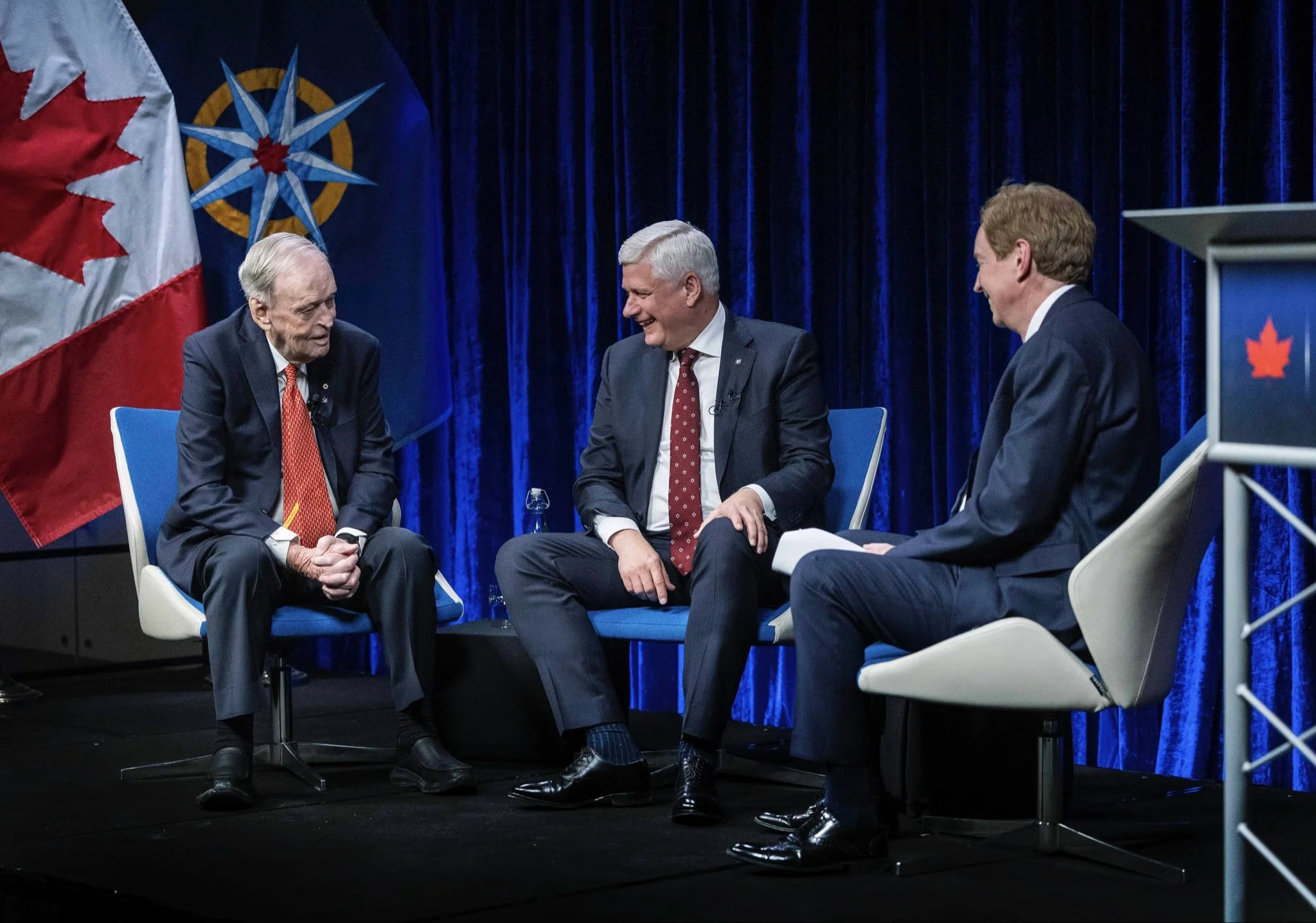Canada signals new stage in U.S. negotiations, some retaliatory tariffs dropped, Carney announces
Prime Minister Mark Carney, pictured with U.S. President Donald Trump during the G7 Leaders’ meeting in June. / GOVERNMENT OF CANADA PHOTO
Stressing that Canada has maintained the best trade deal with the U.S. globally, Prime Minister Mark Carney said he is rescinding retaliatory tariffs against some U.S. imports as Ottawa begins a new phase in negotiations with Washington.
Carney said the U.S. administration confirmed two weeks ago that 85 per cent of Canadian exports are tariff-free under the Canada-U.S.-Mexico (CUSMA) trade deal, and Ottawa is matching those carve-outs for American imports that comply with CUSMA as of Sept. 1. However, Canada’s retaliatory tariffs on aluminum, steel and autos will stay in place.
“Canada and the U.S. have now re-established free trade for the vast majority of our goods,” Carney said as he justified what critics will see as another concession to U.S. President Donald Trump.
Carney said his latest move will allow Canada to shift into intense negotiations with the U.S. over Trump’s sectoral tariffs outside CUSMA on steel, aluminum and other products. He added that Trump had agreed in a call on Thursday to push ahead with negotiations, including seizing opportunities in trade, investment and security.
Renegotiating CUSMA
Also, Canada will step up efforts to prepare for the renegotiation of CUSMA next year by initiating consultations with Canadian stakeholders on bilateral trade issues in September. He said the federal government will soon announce a new comprehensive industrial strategy that "protects Canadian jobs, boosts Canadian competitiveness, buys Canadian goods and diversifies Canadian exports." He added that the government will soon select the first in a series of new nation-building projects.
Carney said Canadian exports now face a 5.6 per cent average tariff by the U.S. compared to 16 per cent globally. He added that it is critical to preserve this “unique advantage” for Canadian business at a time when Trump appears to have permanently moved the U.S. away from its traditional commitment to free trade.
Trump, speaking in the Oval Office shortly after Carney’s announcement, said the removal of the tariffs was “nice” and that he’s fighting for the U.S. He said the tariff campaign is meant to bring industry back to the U.S. and “it’s impossible for another country to stop it,” he said.
Referencing his discussion with President Trump on Thursday, Carney said both leaders see an opportunity to build on where the relationship already is, and the two intend to advance discussions on a "host of areas for investment in both our economies, host of areas on the security side that we can build on."
Responding to a reporter's question on whether he had received assurances from Trump that the lifting of tariffs on CUSMA-compliant goods would kickstart negotiations between Canada and the U.S., Carney said, "Yes."
Carney was asked whether the decision represented the acceptance of the best of a bad deal. He replied:
“I reject the presence of that question or your characterization of what I'm saying we have the best deal with the United States right now [...] We're in a position where we have held out, not signed a deal that we don't think is in the best interest of Canadians, and focused on, and we will remain focused on those strategic sectors to the best interests of Canada.”
Carney was also asked about his planned trip to Germany next week. He noted that he will be joined by the Minister of Energy and Natural Resources, the Minister of Industry and the Minister of National Defence, and the visit would be aimed at deepening Canada's economic and security relationship with Germany.
“I'm very much looking forward to meeting with the [German] chancellor, members of his cabinet, a number of German businesses next week, next Tuesday, [...] about how we can deepen our economic and security partnership with with Germany, how we can earn the opportunities that exist already under CETA, our free trade agreement with Europe, but also across broader areas, and how we we work and develop those.”
Adjusting to a new reality
In a statement released following the press conference, Carney said Canadians “can and must adjust to this new reality. That means concentrating on trade, investment and security partnerships that preserve our sovereignty. And it means striking new trade deals that are robust to different economic circumstances and governments because of mutual benefits to both countries.”
He added: “In all these ways, Canada will move from reliance to resilience: building our strength at home, developing new markets abroad, creating new opportunities for Canadian workers and businesses as we build the strongest economy in the G7.”
In response Conservative Leader Pierre Poilievre said Carney’s announcement shows “yet another capitulation and climb down” by Carney. “His elbows have mysteriously gone missing, and this call follows on other concessions he promised during the campaign,” he said. “Mr. Carney's capitulations would be laughable if they weren't so tragic. They will harm our farmers, our workers, our people, more importantly, from his point of view, they are a broken promise. They are exactly the opposite of what Mr. Carney, ran on.”
For his part, Ontario Premier Doug Ford said he spoke with Carney after his press conference and emphasized the need “to hit back hard against U.S. tariffs and provide additional supports for the workers and businesses in these sectors,” if an agreement cannot be reached. “The federal government also needs to move fast to ensure Ontario steel is helping to build the future of Canada. Everything we make in Canada from ships, military equipment, pipelines to every piece of infrastructure should be made using Ontario and Canadian steel. Let’s get moving,” he said.
Key takeaways
Canada will now match the United States in removing all of Canada's tariffs on US goods specifically covered under CUSMA. The decision will come into force on Sept. 1.
Canada will retain tariffs on steel, aluminum and autos as work continues with the United States to resolve issues around those sectors.
The Government of Canada will begin preparations for the CUSMA review process that is due next year by launching new consultations starting next month to assess Canadian priorities in the new global trade environment.
The federal government will soon announce a new comprehensive industrial strategy.
The federal government will soon select the first in a series of new nation building projects.
U.S. further hikes tariffs on steel and aluminum products
Meanwhile, the U.S. quietly executed a major hike in tariffs affecting Canada and other countries by expanding the list of “derivative” steel and aluminum products covered by sectoral tariffs.
The move by the U.S. Commerce Department raises tariffs on 407 products including wind turbines, mobile cranes, appliances, bulldozers and other heavy equipment, along with railcars, motorcycles, marine engines, furniture and hundreds of other products.
The latest tariff hike came as the fallout in Canada from Trump’s trade war continued to shape the national agenda even in the depths of summer.
In its announcement, the Commerce department said there will be a 50 per cent tariff on any steel and aluminum content in these 407 products, plus the country rate on the non-steel and non-aluminum content.
Despite pleas by some manufacturers to forgo the expanded tariffs, the department is also adding tariffs on imported parts for automotive exhaust systems and electrical steel needed for electric vehicles to the new tariffs, as well as components for buses and air conditioners.
Global investment banking firm Evercore ISI said in a research note that the move covers product codes representing over $200 billion in imports to the U.S. last year and estimates it will raise the U.S.’s overall effective tariff rate by around one percentage point.
This latest blow to Canada’s exporters prompted fresh concerns. Catherine Cobden, head of the Canadian Steel Producers Association, said the move further damages the integrated cross-border economy and will hurt steel manufacturers.
Hamilton Mayor Andrea Horwath told the Canadian Press that Trump’s latest “underhanded move to quietly expand U.S. tariffs” is devastating for her city, adding she’s reached out to both the provincial and federal governments to push them to respond.


